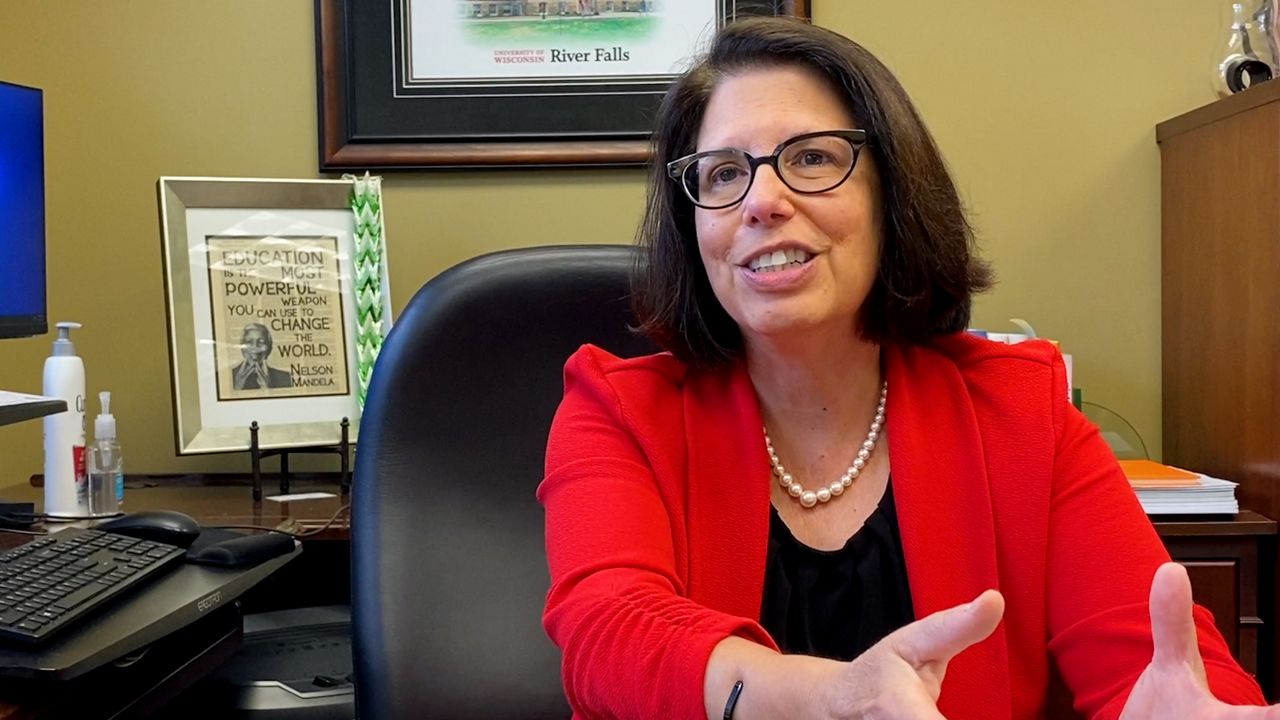MADISON, Wis. — Campus closures and tuition hikes loom at the Universities of Wisconsin with a projected $60 million deficit by next summer.
College leaders and lawmakers hope a change to the state’s reciprocity deal with Minnesota can help ease some of those shortfall struggles.
The Minnesota-Wisconsin tuition reciprocity agreement dates to the 1970s and allows Minnesota residents to attend a University of Wisconsin school without paying out-of-state tuition and vice versa.
Part of that money goes back to Minnesota, while the rest gets deposited into Wisconsin’s general fund, which currently has a surplus of more than $7 billion.
University of Wisconsin-River Falls Chancellor Maria Gallo knows the value of higher education, and it’s why she believes the current tuition reciprocity funding system is “outdated.”
“We’re a tremendous value because our tuition is so low when you compare our tuition to out-of-state tuition, and that’s why the Minnesota reciprocity works to our advantage because Minnesota tuition is higher than Wisconsin in-state tuition,” Gallo explained.

Many of the campuses along Wisconsin’s border see a noteworthy share of their students come from out of state. In the 2021-22 academic year, 43% of UW-River Falls students were from Minnesota.
If the proposed reciprocity bill was in place during that time, UW-River Falls estimates it would have brought in an additional $4.3 million in revenue that year.
“Minnesota students don’t know that, so they’re thinking, ‘Hey, I paid X amount of dollars, and that’s going to the institution for my education,’ and so I think it’s been a realization for some students to realize that’s not the case,” Gallo added.
Though Minnesota families pay higher tuition in their own state, universities in Wisconsin don’t get the full Minnesota tuition amount. Instead, they receive tuition equal to Wisconsin’s in-state tuition rate.
For example, a Minnesota student at UW-Madison paid $14,979 in fees and tuition in 2021-22. However, the campus only received $10,720, with almost $4,259 going to the state’s general fund and a portion returned to Minnesota.
“If we’re spending funds recruiting the student, educating the student, we want to take what they think they are buying and put that back in to give them the value that they are looking for and to meet their needs,” Gallo said.
Gallo took her concerns to the Capitol over the summer and testified in support of Assembly Bill 140 and Senate Bill 161. Both would allow campuses to retain more of their revenue so it could be reinvested to enhance student learning opportunities.

State Sen. Jeff Smith, D-Brunswick, whose district includes UW-River Falls, said under the proposal, the Universities of Wisconsin would renegotiate its reciprocity agreement with Minnesota, and all tuition paid by students from across the border would be distributed to the campus they attend.
“I think most people, logically, think that what we’re trying to do already happens,” Smith explained. “Currently, what it does is that money goes into our general fund down here in Madison, and we spend it any way we want. It could go towards roads, it could go to a lot of different things, but it doesn’t go back to our campuses.”
Though it is a seemingly small change, it could make a big difference for campuses, including Gallo’s.
“We want to keep our education affordable, and we don’t want the burden to fall on Wisconsin taxpayers and students, and this is a great way to do it because it’s not an extra tax, it’s not some other kind of fiscal burden on any kind of Wisconsin resident,” Gallo said.



